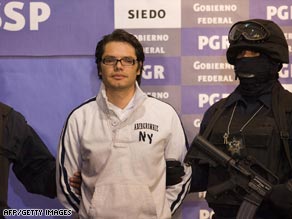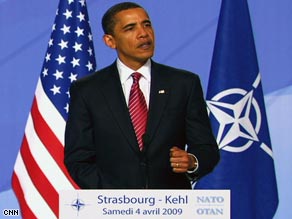The community of Canyon Creek was ranchland rich with limestone and cedar trees when Jim Crow held sway in the South. The first house wasn't built until the late 1980s and not even a hint of discrimination attaches to this little slice in suburbia.
President Barack Obama won more than 48 percent of the vote in November in this overwhelmingly white community northwest of the state capital.
Yet Canyon Creek, the heart of Northwest Austin Municipal Utility District Number One, is the site of a major Supreme Court battle over the federal government's often used and most effective tool in preventing voting discrimination against minorities.
The utility district's elected five-person board manages a local park and pays down bond debt. Because it is in Texas, the board is covered by a section of the Voting Rights Act that requires approval from the Justice Department before any changes can be made in how elections are conducted.
That requirement applies to all or parts of 16 states, mostly in the South, with a history of preventing blacks, Hispanics and other minorities from voting.
The utility district is challenging that section of the law, which Congress extended in 2006 for 25 years. The Obama administration is defending it.
The Voting Rights Act, enacted in 1965, opened the polls to millions of black Americans. The law "has been the most important and transformative civil rights act in our country's history," said John Payton, director of the NAACP Legal Defense and Educational Fund.
The federal government has used the provision, known as Section 5, to "stop things that would have perverted our democracy," Payton said. His group represents Texans and organizations seeking to preserve the section.
On the other side are the utility district, an array of conservative legal groups and some Southern Republicans.
Texas and other Southern states once might have deserved to be under federal supervision, but the time for this "unparalleled federal intrusion" on a traditional power of state and local governments has passed, the utility district says in its challenge.
The justices will hear arguments in the case this coming Wednesday.
Much has changed across the South and elsewhere in the country, not least of which is Obama's election, Gregory Coleman, the district's lawyer, has told the court.
If the justices side with Canyon Creek, they could strike down Section 5 entirely, eliminating the need for any jurisdiction to seek prior approval for election changes, or tailor a narrow ruling that applies only to the utility district.
Coleman, a former Texas solicitor general, had been looking for a way to take on Section 5. In Canyon Creek, with its lack of racially charged history and unstinting compliance with the Voting Rights Act, he found a willing partner.
As recently as 2002, voters in Canyon Creek walked up Jack Steuber's driveway to choose their utility district board. Bill Ferguson won a seat on the board, then sought to hold the next election in a school rather than in a neighbor's garage.
But first the board had to seek federal clearance to change the polling location. The community got it, but Canyon Creek's board didn't understand the need to ask Washington to sign off on a change in a tiny neighborhood where there isn't a trace of minority voter discrimination.
The community has about 3,500 residents, 80 percent of whom are white, according to the 2000 census. A number of families settled in Canyon Creek for high-tech jobs. Some work at Dell Inc., whose headquarters is nearby in Round Rock.
Don Zimmerman, the utility district's vice president, spent a recent afternoon installing a security camera to scare away teenage vandals who keep ripping planks off a playground set.
"It's insulting to me to be accused of having a racial bias just because you live in Texas," said Zimmerman, an engineer.
Ferguson, 53, said, "I'm sort of embarrassed that we're still subject to this because it makes us look like dumb crackers. I don't think it's appropriate anymore."
Resounding majorities of Democrats and Republicans in Congress, however, thought it was necessary when they voted in 2006 to extend the advance approval requirement for 25 more years. President George W. Bush, a Texan and a Republican, signed the measure into law.
"Today, we renew a bill that helped bring a community on the margins into the life of American democracy," Bush said at the signing ceremony in July 2006. "My administration will vigorously enforce the provisions of this law, and we will defend it in court."
A few Republicans have raised their voice in opposition to the extension of the law, which otherwise would have expired in 2007. Among them are Republican Govs. Sonny Perdue of Georgia and Bob Riley of Alabama.
Their states, the governors said, have worked hard to eradicate the government-sponsored discrimination that resulted in federal supervision. "Georgia has earned the right to be free" of asking the federal government to bless election changes, Perdue said. In Alabama, blacks and whites register and vote in similar proportions, Riley said.
Other numbers suggest, as Justice Anthony Kennedy said in a recent court case involving a different section of the Voting Rights Act, "racial discrimination and racially polarized voting are not ancient history." In Alabama, Louisiana and Mississippi _ all of which must submit proposed election changes for approval _ less than 15 percent of white voters chose Obama.
Evidence amassed at congressional hearings showed that hundreds of discriminatory proposals were rejected by the Justice Department or withdrawn when government lawyers raised questions.
The Supreme Court has upheld the advance approval requirement on four occasions before now. The outcome this time may be no different, but the recent additions of Chief Justice John Roberts and Justice Samuel Alito have given hope to the law's opponents.
Roberts, in particular, has in several cases opposed the continuing use of race, once lamenting the "sordid business" of taking race into account to draw congressional districts.
In Canyon Creek, residents seem to care more about their tax squabbles with the Austin city government than the voting rights dispute, according to Ferguson, the board member.
And not all the utility district's leaders believe issue before the high court has run its course. Chris Bowers, 40, was elected last May on a platform that questioned why this was even Canyon Creek's fight. Bowers believes his victory shows many agree with him.
"I think it's dangerous to be using the government entity which has this narrow focus of paying off ... bonds" to challenge a federal law, Bowers said. "This really seems out of scope."
Supreme Court Writer Mark Sherman reported from Washington.







